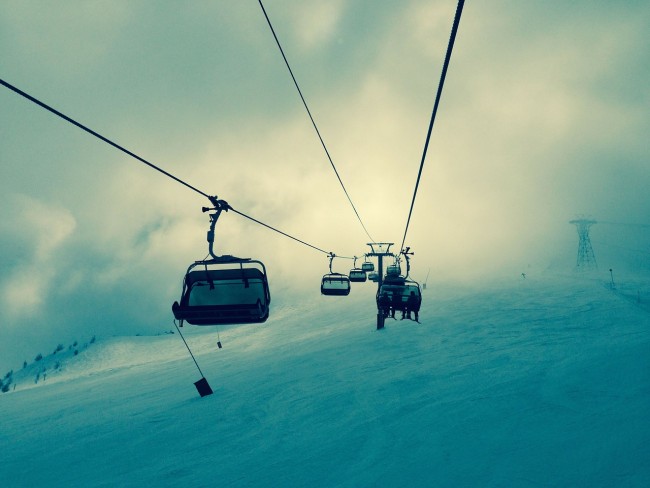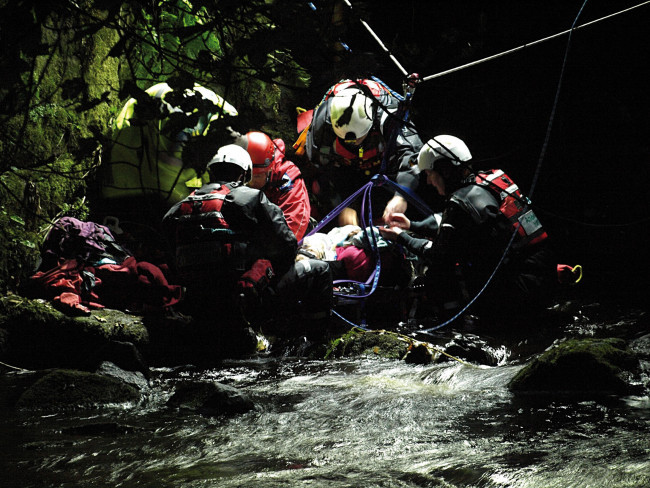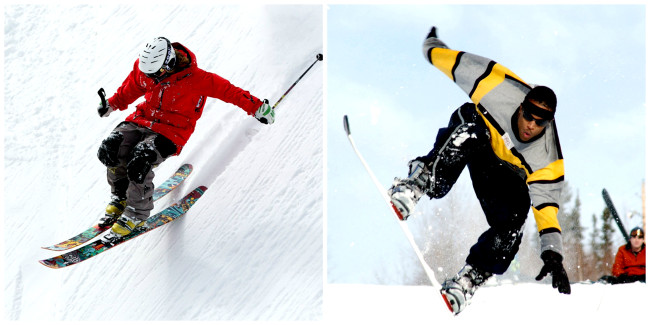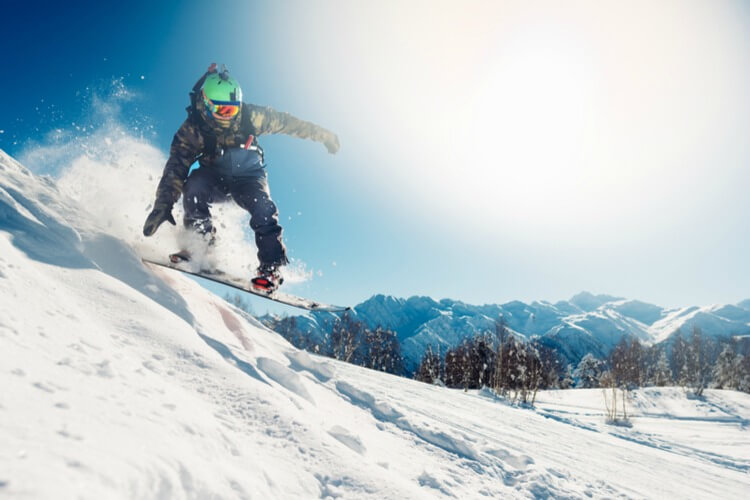
We're at the time of year when many people head to the slopes for a spot of winter sports. If you like the idea of skiing or snowboarding but aren't really sure how to go about it, what you need to buy or even which sport is right for you, then we've got all the information you need.
We spoke to Snowsport England, the governing body for English skiers and snowboarders for their tips and advice on how to get started and how to stay safe on the slopes...
What gear would you recommend beginner skiers and snowboarders wear?
When you are skiing or snowboarding you need to wear the right clothing, including waterproof salopettes, a waterproof jacket, warm base layers and thermals, a helmet or warm ski hat, waterproof gloves and long ski socks. You will also need your skiing or snowboarding equipment; boots, skis or a snowboard, bindings, and for skiers, poles (except when you very first begin).
Related: Ski Jacket Buying Guide
What should people take with them/rent when they're there?
If you are going skiing or snowboarding abroad, you will have to take all your own ski clothing, but if you are skiing on a UK slope, you can often rent salopettes and jackets. If you want to buy ski clothing, there are lots of places that offer low cost kit. In terms of skis/a board and boots, you are better off renting them for the first time. This can be done in your ski resort or at the UK slope.
How fit do you have to be to ski or snowboard? Is there a base level of fitness one should get to before they go?
Yes, you do have to have some fitness for both skiing and snowboarding. If you get fit you can ski for longer and will be more likely to avoid injury. You need to work on your strength, cardio vascular fitness and your flexibility. Probably the most important part of getting ready to hit the slopes is to think about strength in all the muscles you use for skiing or snowboarding (which is a lot!). Most of us aren’t experts in this, so it is worth seeking out ski fitness classes at local gyms, or you could consider cross fit, kettlebells or strength based circuits. You should try and start at least 6 weeks before your trip.
Your strength work will help your overall fitness, but it is good to try and do some work on your heart and lungs as well. Cycling is probably the best exercise for skiing or snowboarding, but running or even walking can help – as long as you are getting out of breath.
Being flexible will help your overall skiing or snowboarding, as well as helping you recover more easily from tumbles. Doing balance work or classes such as yoga will definitely help you on your skis and snowboard, and might help you fall over less!
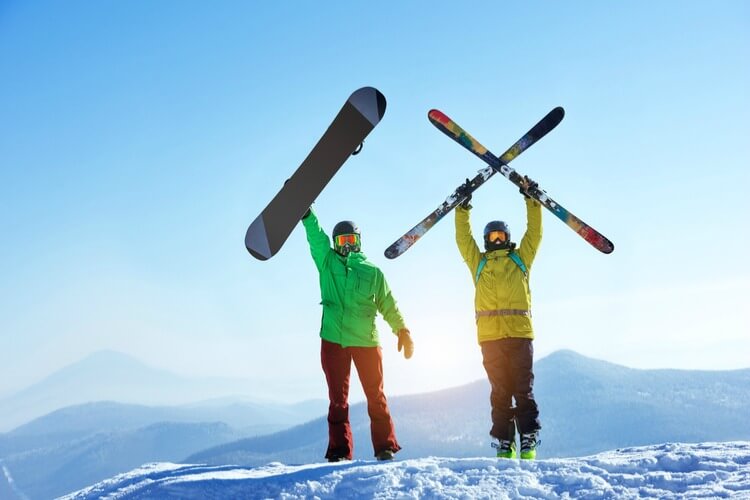
How long would you expect a complete beginner skier or snowboarder to have a grasp of the basics?
You can pick up the basics within a day, and be making turns within two days - maybe three on a snowboard. After a week of skiing or snowboarding, you will easily be cruising around the basic runs.
Is there anything people can do before they go to help when they're there?
We strongly recommend taking a lesson on a UK artificial or indoor snow slope before you go overseas to ski or snowboard. This will get you used to how your skis or snowboard feel, how your boots feel and will also allow you to master the very basics. It will give you a huge head start once you get out to the resort.
If someone is unsure which sport to take up, what tips would you give to help them make a decision?
Skiing is easier to pick up initially than snowboarding, but harder to master in the long run. Both are a lot of fun, and we would suggest trying the one that you think you want to try the most!
Related: Skiing vs Snowboarding - Which Should You Take Up?
How can skiers and snowboarders keep themselves safe on the slopes?
There are lots of things that can be done to keep yourself safe on the slopes, including controlling your speed and being aware of the other things and people around you. It is also important to stay warm enough and wear the correct clothing. It is also a good idea to know the International Ski Federation code of conduct: http://www.fis-ski.com/uk/insidefis/fisgeneralrules/10fisrules.html
Is there any equipment you recommend taking to improve safety?
The amount of people wearing helmets has increased a lot over the last 10 years, and many beginners wouldn't be without one. For snowboarders, you may also want to consider wrist guards. Being fit before you head out is also important to help you stay safe on the mountain.
Ski lifts can be daunting for beginners. Any tips for tackling them?
Start off on the easier 'magic carpets' and then you can progress to drag lifts and chairlifts. They really aren't that hard at all. It is just a matter of getting used to them, which won't take long at all. Just follow what your instructor or the lift operator says.
Do you have any other general tips you'd pass onto beginner skiers and snowboarders?
Take lessons before you go on a UK slope, do some basic fitness, and smile at all times!
Snowsport England are the national governing body for skiing and snowboarding in England and work towards encouraging increased participation in snowsports. They run a national campaign called GO SKI GO BOARD offering value for money, all inclusive sessions for skiing and snowboarding, from TRY taster sessions through to more advanced GO sessions. To find your nearest slope offering GO SKI GO BOARD sessions visit www.goskigoboard.org.uk.
Shop our full range of ski & snowboard wear to be prepared for your next - or first! - day on the slopes!
Do you have any tips for new skiers or snowboarders? Let us know in the comments or tweet us @WinfieldsOutdrs.




